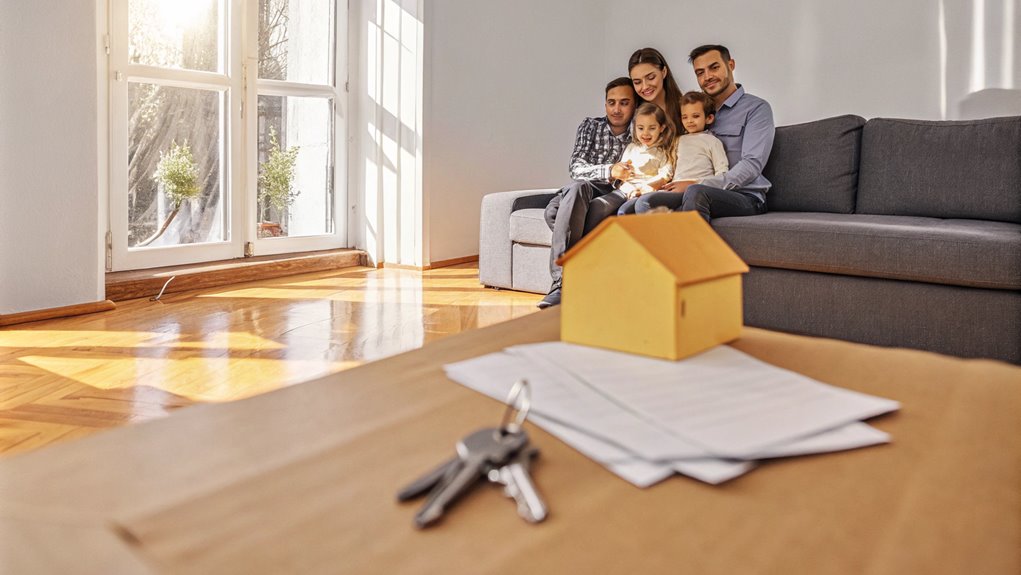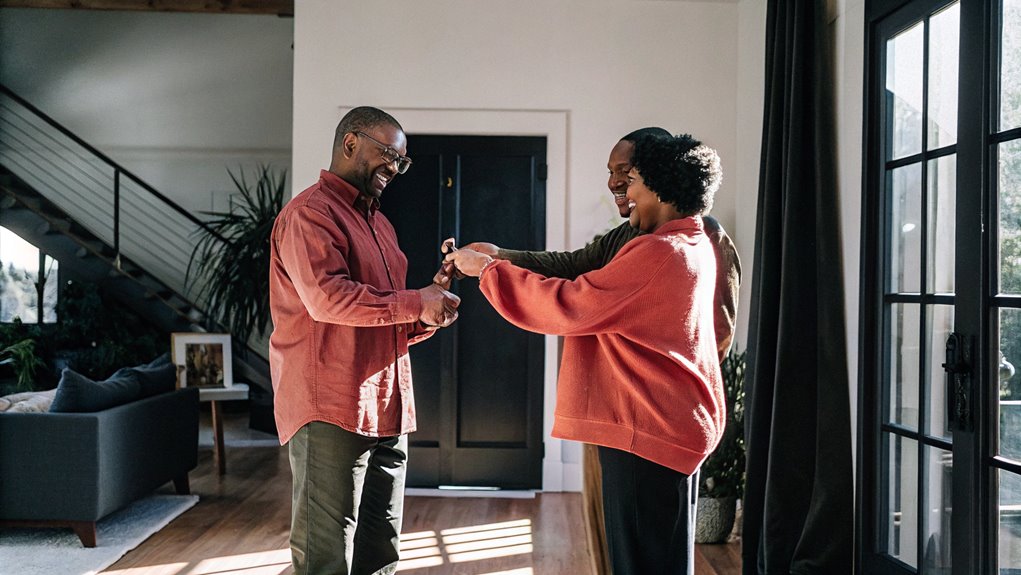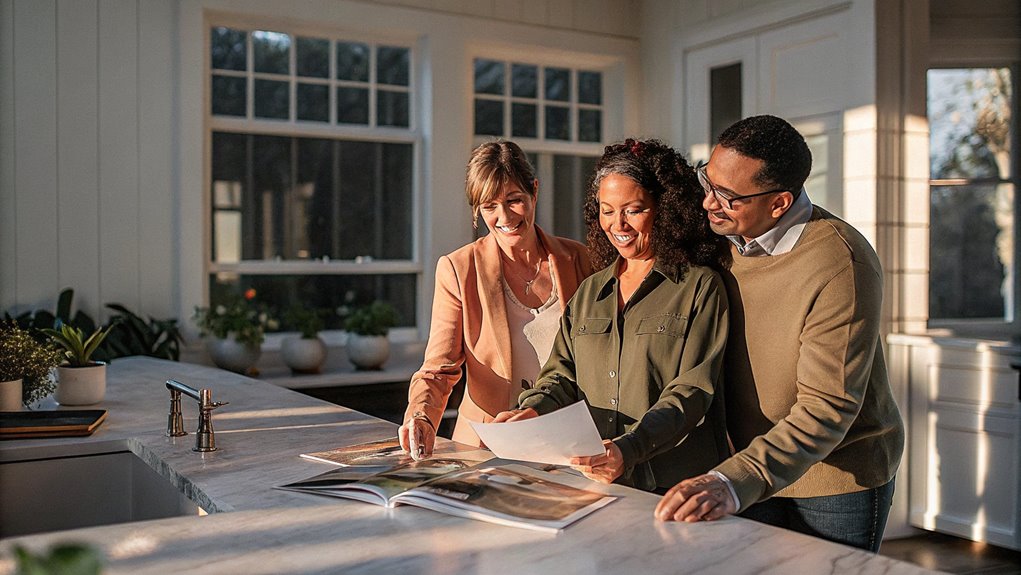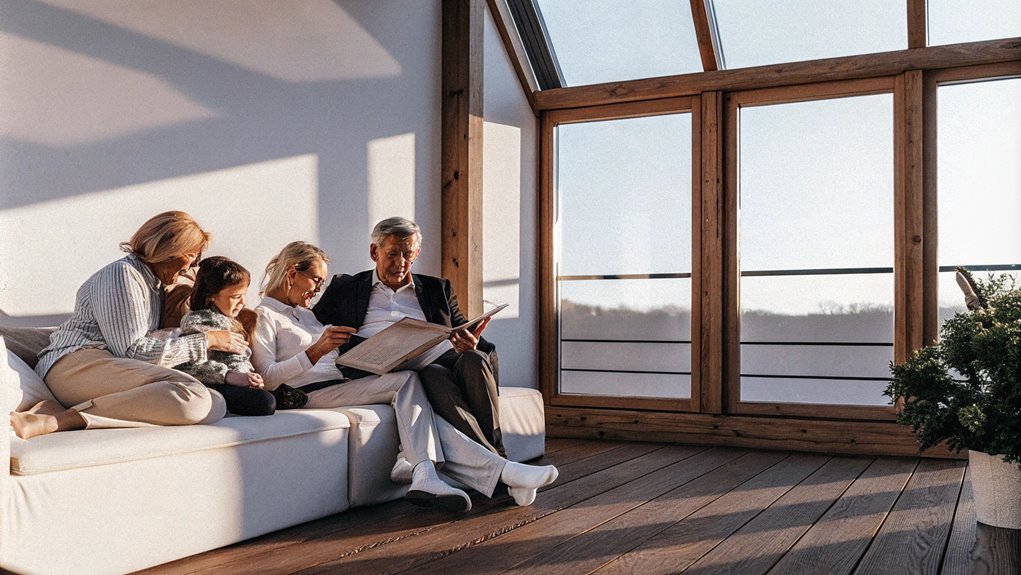Your home is more than just a place to live – it's a way to build money for your family's future. When you pay your mortgage each month, you own more of your home. As time goes by, your home may be worth more money too. You can save on taxes when you own a home. You can even make extra money by renting out rooms or space in your home. Taking good care of your home keeps it worth more money. If you learn how your home can make money, you can help your kids and their kids have a better life later on.
Understanding Home Equity Growth

Your home grows in value in three ways: when your house becomes worth more, when you pay down your loan, and when you make your home better.
Most homes go up in price over time, like a savings account that grows on its own. Think of a house that costs more to buy each year.
Every time you make a house payment, you own more of your home. Part of each payment helps pay off your loan. That means you have more of your home to call your own.
You can also make your house worth more by fixing it up. New kitchens, better bathrooms, or things that save energy can help.
When you spend money to make these changes, your house can be worth much more than what you paid to fix it.
Tax Benefits of Homeownership
When you buy a home, you can save money on taxes. Your home helps you pay less in taxes each year. You can take money off your taxes for what you pay in home loan interest and property taxes. This can save you a lot of money, most of all when you first buy your home.
You can also save on taxes when you make your home better for saving energy. If you add solar panels or new windows that help save power, you get money back on your taxes.
When you sell your home, you keep more money too. You won't pay extra taxes on the first $250,000 you make from selling your home. If you're married, you can keep $500,000 without paying extra taxes. But you must live in your home for at least two years to get this tax break.
Property Appreciation Over Time

Buying a home can help you grow your money over time. Just like a tree grows taller each year, homes tend to grow in value as time passes. While home prices go up and down, they usually end up worth more in the long run.
| Year Range | Average Home Price | Appreciation Rate |
|---|---|---|
| 1970-1980 | $23,450 | 142% |
| 1980-1990 | $68,700 | 74% |
| 1990-2000 | $119,600 | 51% |
| 2000-2010 | $207,000 | 27% |
| 2010-2020 | $389,400 | 88% |
When you own a home, you can:
- Watch your home's value grow
- Build up your savings
- Give something special to your kids one day
Most people who buy homes end up with more money than they started with. This is why many families choose to buy a home to build their wealth.
Leveraging Your Home Investment
Your home can help you grow your money in simple ways. It's not just about waiting for your home to go up in value.
Think of your home like a piggy bank. When you need money, you can:
- Get a home loan to buy more houses. These houses can make you money while you still live in your main home.
- Use your home to get better loans for a business. Banks like to give loans when you own a home.
- Pay less in taxes. The money you spend on your home can help cut your tax bill. This leaves more money in your pocket.
These are smart ways to use your home to build more money over time. A home is more than just a place to live – it can help you grow your wealth too.
Creating Rental Income Streams

Renting your home can help you make money each month. When others pay rent to live in your space, you get steady money while your property grows in value.
You can rent out different parts of your home:
- A basement room
- A spare room
- Your whole house
- Part of a split house
- A room for short stays
| Space to Rent | Money You Can Make | Money to Start |
|---|---|---|
| Basement | $800 – $1,200 | $15,000 – $30,000 |
| One Room | $500 – $800 | $2,000 – $5,000 |
| Whole House | $1,500 – $3,000 | Your House |
| Split House | $2,000 – $4,000 | $50,000 – $100,000 |
| Short Stays | $2,500 – $5,000 | $10,000 – $20,000 |
Start by renting one room to see how it works. You will learn how to be a good landlord. The money you make can help you buy more places to rent. This way, you can keep growing your money over time.
Smart Home Improvement Strategies
Your home is a special place that can be worth more with some smart fixes. Let's make it better together!
The kitchen and bathroom are great places to start. New sinks and counters can make them look fresh. When you sell your home later, you'll get back most of what you spent.
What to do first:
- Fix big problems first – make sure your walls are strong and your pipes work well.
- Save money on bills – put in good windows and better wall padding to keep warm air in.
- Make the outside pretty – plant nice flowers and paint the house to make it look nice from the street.
These changes will make your home nicer to live in. They'll also help you save money each month on power and water bills. Plus, people who might want to buy your house later will really like these updates.
When you fix up your home, you make it a better place for you now and worth more money later. Start with the big fixes, then make it pretty. Your home will thank you!
Mortgage Payment Structure Benefits

Think of your house payment like filling up a piggy bank each month.
At first, most of your money goes to pay the bank. But as time goes on, more of your money helps you own more of your home.
You pay the same amount each month, which makes it easy to plan. This way, you build up something of your own instead of giving rent money away to someone else.
It's like saving money without having to think about it – the more you pay, the more of your home you own.
Principal Over Interest Ratio
When you pay your monthly mortgage, your money goes to two places – the bank's interest and your home. At first, most of your payment helps the bank. Only a small part goes to your home. But this changes over time!
Think of it like this:
- In the first few years, about $7-8 out of every $10 you pay is for the bank
- After 15 years, half of your money goes to your home
- Near the end, most of your payment – about $8.50 out of every $10 – goes to your home
As time goes on, more of your money helps you own more of your home. This is good for you! The more of your home you own, the more money you can save for your future.
Fixed Payments Build Equity
Your home payments help you own more of your house each month. Think of it like a piggy bank – every time you pay, you put money toward your house. This is better than paying rent, where the money just goes to someone else.
Your payments stay the same each month, which makes it easy to plan ahead. You know exactly what you need to pay. The more you pay, the more of the house belongs to you. This helps you build up money over time, like saving in a bank.
Unlike when you rent, the money you spend on your house helps you own it. This is good for your future. Your house can be worth more money later, and that money belongs to you.
Building Credit Through Property
Owning a home helps you build good credit. When you pay your home loan on time each month, it shows banks you're good with money. Your house becomes something valuable that makes banks trust you more.
Your credit gets better in three ways when you own a home:
Your on-time home payments make your credit score go up a lot.
Having a home loan shows you can handle big bills well.
As you pay off more of your house, banks see you as less risky.
The more you pay your home loan, the better your credit will be. Better credit means you can get lower costs when you need to borrow money later.
Estate Planning With Real Estate

Real estate can help you take care of your family after you're gone. You want to make sure your loved ones get the most from your homes and land. A living trust can make it easier to pass your property to your family when you die.
There are simple ways to give your property to others. You can sign papers that say who gets your home. You can also team up with family members to share and protect your property.
Just be sure to keep your plans up to date with the right names on all papers.
Get help from people who know about houses and family planning. They can show you the best way to take care of your property and your family's future.
House Hacking For Wealth
Want to grow your money with your home? Try house hacking! This means you live in one part of your home and rent out other parts to make money.
When you rent out parts of your home, others help pay your bills. You learn about owning homes and make extra cash each month.
Here are ways to do it:
- Fix up your basement or garage. People can live there and pay you rent. This can pay for half of your home costs.
- Get a home with two or three units. Live in one part and rent the others. The rent can pay for all your home costs.
- Rent out empty rooms in your house. This works well if you live near a school or where lots of people work.
This is more than just saving money. You grow your money and learn how to be smart with real estate at the same time.
Protecting Your Home Investment

Your home is like a big piggy bank that needs your care. You must protect it in three ways: take good care of it, get good insurance, and save money for when things break.
First, get home insurance. It helps pay for fixes if bad things happen to your house. If you live where there are storms or floods, get extra insurance for those too.
Save some money each year to fix things that break. Put aside a small part of what your home is worth.
Keep track of what you spend to make your home better. Write it down! Check your roof, air system, and base of your house often. These are the parts that cost the most to fix.
Add more insurance if you rent your house to others. Get good locks and cameras too. This helps keep your home safe and can make your insurance cost less.







